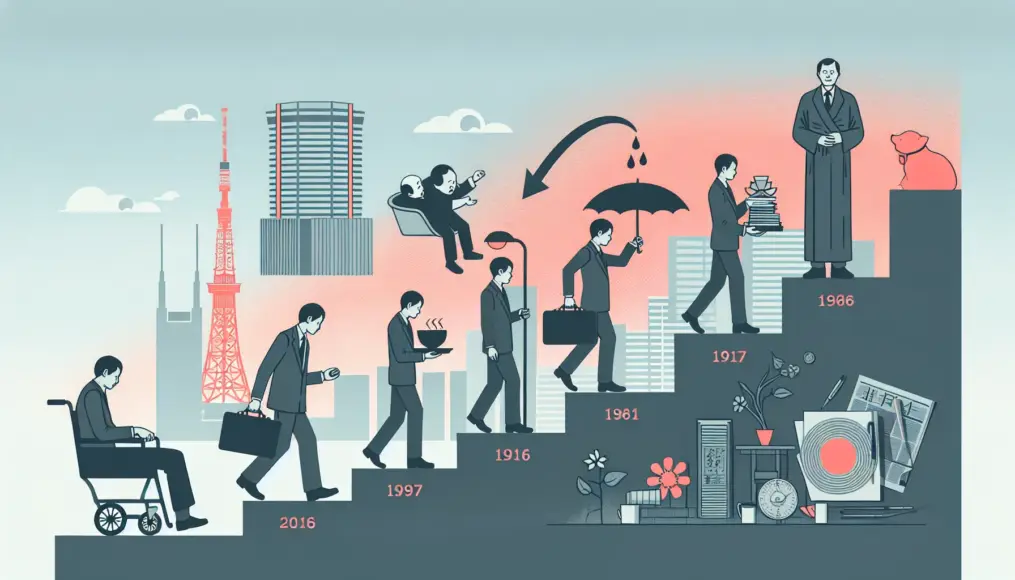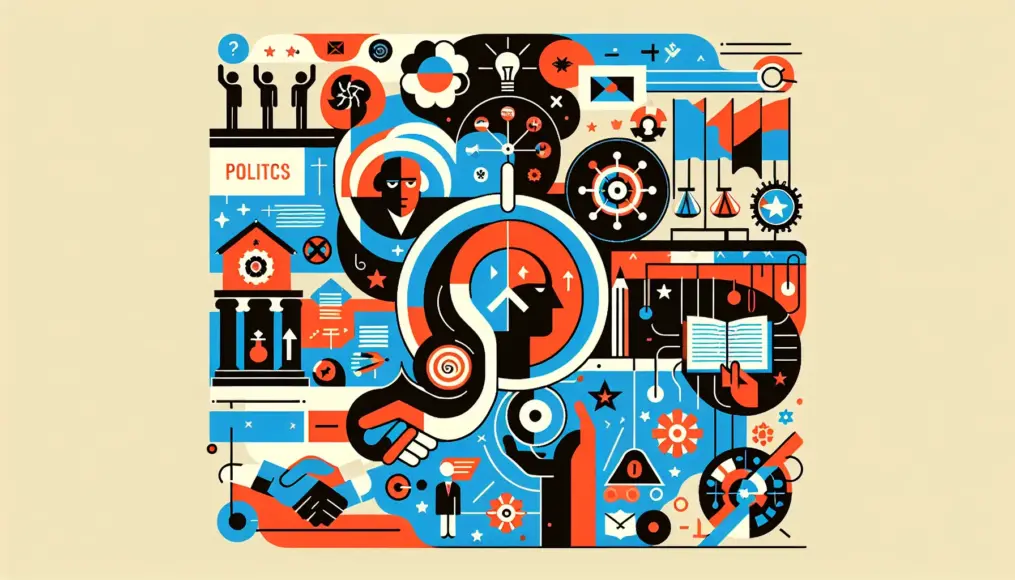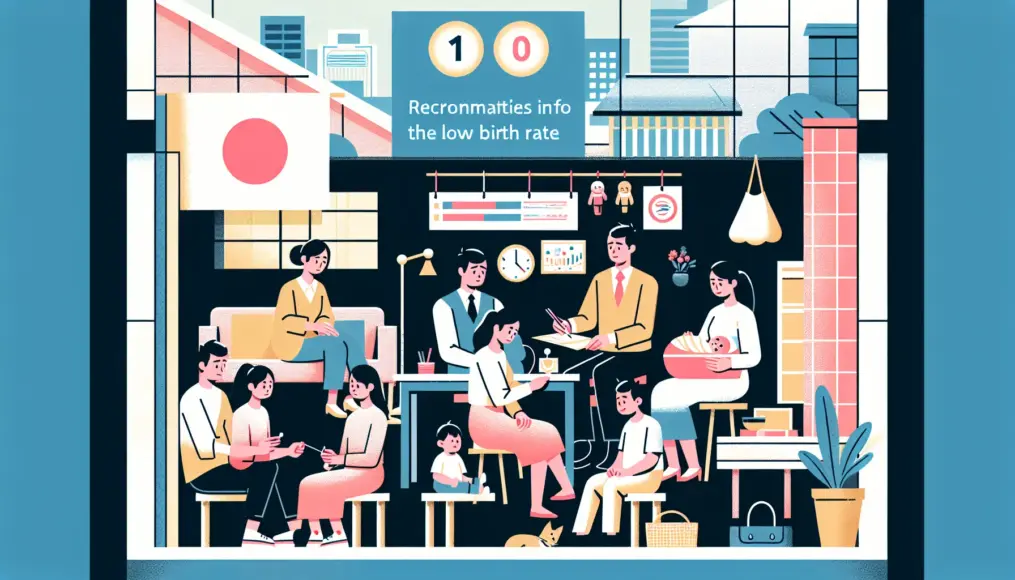A welfare state is a system that aims to guarantee basic living standards for all members of society. Throughout its development, various historical factors have played a significant role in shaping its structure and functionality. Exploring how the welfare state has evolved and the role it plays in modern society is crucial for understanding our social landscape.
Moreover, the welfare state also has a profound impact on individual psychology. By examining how people perceive its benefits and the challenges they face, we can gain insights into the future potential of welfare systems. Let’s take a deeper look at the evolution of the welfare state and its psychological effects.
- Reflecting on the history and key turning points of the welfare state
- Considering the role and evolution of welfare policies in contemporary society
- Exploring the psychological benefits and challenges that the welfare state presents to individuals
The Historical Background of the Welfare State
The welfare state has evolved as a system where the government supports individual lives to promote the overall well-being of society. Its origins can be traced back to the need to address economic inequality and social issues. Throughout history, welfare systems have undergone various changes, leading to their current forms. Let’s explore how these systems came into existence and the significant policy shifts that have shaped them.
Origins of the Welfare System
The roots of the welfare system primarily date back to 19th-century Europe. During this time, rapid industrialization led to widespread poverty, leaving many people struggling to make ends meet. In response, governments began to implement social security systems for the first time, establishing laws and programs aimed at protecting the vulnerable. Particularly important were initiatives designed to safeguard the working class.
In its early stages, the welfare system focused mainly on providing healthcare and education, laying the groundwork for basic living security. This movement highlighted the importance of social solidarity and significantly influenced the later development of the welfare state.
- The welfare system originated in response to the industrialization of the 19th century.
- Governments established social security systems and laws to protect the vulnerable.
- Early welfare systems emphasized healthcare and education.
Major Policy Shifts
The development of the welfare state has been marked by several crucial policy shifts. Notably, the post-World War II recovery period saw a significant transformation in the role of the state. Many countries strengthened their welfare systems, leading to the establishment of comprehensive social security. During this time, initiatives like universal health coverage and unemployment insurance were developed, enabling a larger portion of the population to benefit from these services.
However, starting in the 1970s, economic changes and globalization prompted a reevaluation of welfare policies. There was a growing emphasis on market liberalization and efficiency, which led to a reassessment of welfare state principles. As a result, welfare policies have become more flexible, adapting to the needs of society.
For those interested in understanding the evolution of the welfare state, we recommend the article “Considering the Economic and Social Impact of Declining Birth Rates.” It explores the economic and social implications of declining birth rates in Japan, prompting a renewed examination of the importance of welfare systems. This resource provides valuable insights into the challenges faced by welfare states.
- The welfare system was significantly strengthened in the aftermath of World War II.
- Initiatives such as universal health coverage and unemployment insurance were established.
- Since the 1970s, welfare policies have been under review in response to economic changes.
The Role of the Welfare State in Modern Society
In today’s world, the welfare state plays a crucial role that goes beyond merely providing social security; it is essential for improving the quality of life for citizens. As economies change and societies diversify, welfare policies have continuously evolved, becoming more flexible and effective. This progress is creating an environment where individuals can live with greater peace of mind.
The role of the welfare state is also significantly influenced by shifts in societal awareness. As people’s values and expectations change, so too do the policies that govern welfare. Let’s delve deeper into the evolution of welfare policies and the accompanying changes in social consciousness.
The Evolution of Welfare Policies
Welfare policies have undergone significant transformations over the years. Traditionally, the focus was on basic living security, but today, support is sought across a range of areas including health, education, and employment. Particularly in light of an aging population and declining birth rates, enhancing welfare systems has become increasingly crucial.
Recently, there has been a rise in new welfare services that leverage digital technology. With online consultations and support becoming more commonplace, a larger number of people can access these services, contributing to a broader utilization of welfare programs. This evolution allows the welfare state to better meet diverse needs.
- Welfare policies are evolving from basic living security to diverse support systems
- There is a growing demand for systems that respond to aging and declining birth rates
- The rise of new welfare services utilizing digital technology
Changes in Social Awareness
In contemporary society, expectations surrounding the welfare state have shifted dramatically. In the past, it was believed that welfare systems were only necessary for specific groups of people, but now there’s a growing awareness that everyone may need support at some point. This change strengthens the sense of solidarity within society and promotes the realization of more inclusive policies.
Moreover, as interest in the welfare state rises, opportunities for citizens to participate in policy-making have increased. There is now a demand for policies that reflect the voices of the public, making welfare systems more aligned with real-world needs. These shifts in social awareness are driving the development of the welfare state.
To gain a deeper understanding of contemporary welfare policies, it’s essential to consider approaches to the pressing issue of declining birth rates and an aging population. If you’re intrigued by this topic, you might also find this article, “Tackling Japan’s Aging Population: Cultural Solutions,” particularly insightful, as it explores concrete solutions from a cultural perspective. Be sure to check it out!
- Expectations for the welfare state are spreading throughout society
- Citizen participation is increasingly influencing policy-making
- There is a growing necessity for welfare systems that reflect real-world conditions
The Psychological Impact of Welfare States on Individuals
Welfare states not only provide crucial support for citizens’ livelihoods, but they also have a significant impact on individual psychology. With well-established welfare systems, more people experience a sense of security and stability in their lives, which positively contributes to their mental well-being. However, there are also psychological challenges that arise from dependency on these systems. Let’s take a closer look at the psychological benefits of welfare states, as well as the challenges that need to be addressed.
Psychological Benefits
The psychological benefits offered by welfare state systems are diverse. First and foremost, having a basic safety net frees individuals from economic worries, allowing them to live with greater peace of mind. This sense of security directly correlates with reduced stress and improved mental health. Additionally, engaging with welfare services fosters connections within the community, which can help alleviate feelings of loneliness.
Moreover, the educational and vocational training opportunities provided by welfare states promote personal growth and enhance self-esteem. The feeling of being able to contribute to society and showcase one’s abilities brings about positive psychological effects.
- Basic livelihood support reduces economic anxiety
- Connections with society decrease feelings of loneliness
- Education and vocational training boost self-esteem
Psychological Challenges
On the flip side, welfare systems can also present psychological challenges. Over-reliance on these systems may diminish a person’s sense of autonomy. When support is taken for granted, the motivation to solve problems independently can decline. Additionally, there are biases and stigma associated with welfare recipients, which can lead to feelings of social isolation for some individuals.
Furthermore, if welfare systems do not function effectively, they can inadvertently become sources of anxiety and stress. The complexity of the system, lack of information, and insufficient support can create psychological burdens for users. Thus, it’s essential to address the psychological challenges that welfare states face.
For those interested in gaining a deeper understanding of the psychological impacts of welfare states, I recommend checking out the article “Exploring the Realities and Future of an Aging Society Through Experience.” This article provides an in-depth examination of the challenges and possibilities faced by society through individual experiences in an aging world. By connecting the dots between welfare systems and individual psychological effects, readers can attain a broader understanding of these complex issues.
- Dependency on the system can undermine autonomy
- Stigma against welfare recipients can foster social isolation
- System inefficiencies can lead to psychological burdens
The Future of the Welfare State and Its Potential
The future of the welfare state is poised for significant transformation driven by various social changes and technological innovations. Upcoming welfare policies will need to evolve beyond traditional frameworks to meet diverse needs. In particular, new approaches are essential for addressing the challenges posed by an aging population and widening social disparities. Let’s explore the potential outlook for the future welfare state and its impact on society.
New Perspectives on Policy
In the future welfare state, we can expect the implementation of more inclusive and flexible policies. With advancements in technology, digitized services will become widespread, leading to the introduction of customized welfare systems tailored to individual needs. For instance, if we can successfully integrate AI into health management and daily living support, we could provide community-based assistance that is more responsive and effective.
Building a sustainable welfare system is also a critical challenge ahead. To tackle environmental issues and economic changes, cooperation across society will be essential. By securing new resources and revitalizing local communities, we can look forward to realizing a sustainable welfare state.
- Digitized services will enable customized welfare systems
- The introduction of AI-driven health management and support services will advance
- There is a pressing need to establish a sustainable welfare system
Anticipated Impact on Society
The realization of the future welfare state is expected to have a wide range of effects on society as a whole. First and foremost, the quality of life for citizens is likely to improve, fostering a healthier and more secure living environment. Enhanced welfare systems can contribute to economic stability, leading to a rise in overall societal happiness.
Moreover, the evolution of the welfare state could strengthen social solidarity. As everyone gains access to the benefits of welfare programs, we may see a reduction in inequality and a decrease in social isolation. The future welfare state will play a crucial role in embracing diversity and realizing a more inclusive society.
For those interested in a deeper understanding of the future welfare state, I recommend this article: “Practical Approaches to Solve the Declining Birthrate Problem!.” It provides an in-depth look at how the issue of declining birthrates impacts welfare systems and explores potential solutions. Gaining insights from related perspectives will enrich your understanding of the future of the welfare state.
- Quality of life will improve, leading to increased happiness
- Social solidarity will strengthen, helping to reduce inequalities
- The welfare state will play a vital role in achieving a more inclusive society
Conclusion
Welfare states have undergone significant transformations throughout history, serving as a vital system in the pursuit of collective happiness. Reflecting on the evolution of welfare policies, we see how initiatives designed to support individuals’ lives have progressed and now play various roles in modern society. By understanding the psychological benefits and challenges that come with welfare states, we can better explore the possibilities for future welfare systems.
Looking ahead, it is expected that welfare states will adapt to technological advancements and social changes, evolving into more inclusive and sustainable systems. Each of us has a role to play in understanding and leveraging these systems to contribute to a better society.
- Welfare states have evolved throughout history and play a crucial role in modern society.
- Understanding the psychological benefits and challenges reveals the potential of welfare systems.
- Future welfare states are anticipated to be sustainable systems responsive to technological advances.
Let’s deepen our understanding of welfare states and work towards creating a better society. We’d love to hear your thoughts and comments!



Comment